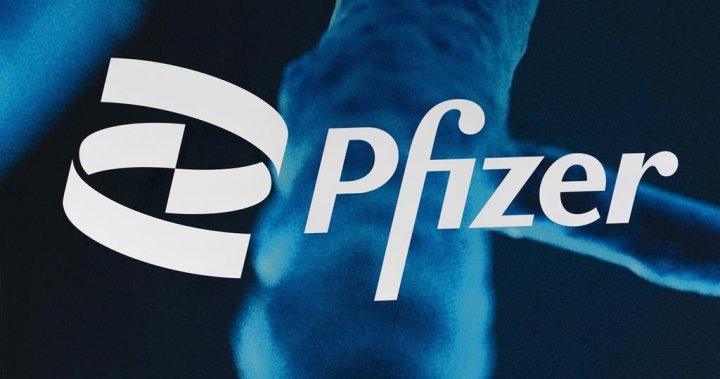Pfizer on Tuesday urged investors to focus on growth in its non-COVID products such as its new RSV vaccine Abrysvo, after weak demand for its COVID-19 vaccine and treatment pushed the drugmaker to its first quarterly loss since 2019.
As announced earlier this month, the company recorded a $5.6 billion one-time charge to account for the U.S. government returning millions of doses of its antiviral treatment Paxlovid, as well as inventory of its vaccine Comirnaty.
A drop in the use of vaccines and products as the pandemic receded has fueled a 40 per cent drop in Pfizer’s shares this year and could remain a drag going forward, analysts have said. The stock fell about two per cent in early trading.
With the sharp decline in COVID demand, Pfizer is still going to be under pressure to meet its sales guidance for 2023, said BMO Capital analyst Evan Seigerman.
Sales of the COVID-19 treatment and the vaccine it makes with German partner BioNTech SE had boosted Pfizer’s revenue to record levels in the last two years. However, annual vaccination rates have dropped sharply and demand for treatments has dipped as population-wide immunity has increased.
In a statement ahead of a conference call with investors, Pfizer said it continued to expect revenue growth of six per cent-eight per cent from its non-COVID products for the year, with a majority of it occurring in the second half.
Sales of its recently launched respiratory syncytial virus (RSV) vaccine, Abrysvo, came in at $375 million for the quarter.
Even so, Pfizer’s shot looks to be lagging behind in sales to a rival product from GSK, which is the only vaccine being carried by the top U.S. pharmacy chain CVS Health.
Pfizer provided an update on its experimental messenger-RNA influenza vaccine showing that it worked about as well as a licensed flu vaccine in a late-stage study in 18-to-64-year-olds.
It said the vaccine hit secondary immunogenicity goals for influenza A strains, but not B strains of the virus.
Shares in Moderna, which also makes a COVID vaccine and is developing an mRNA flu shot, were last down marginally in choppy trading. It reports financial results on Nov. 2.
Pfizer is also hoping for growth from its $43-billion deal for cancer-therapy specialist Seagen to bolster its product portfolio. The deal, cleared in Europe, is being reviewed by U.S. regulators.
Paxlovid sales slumped 97% in the third quarter to $202 million, while vaccine revenue came in at $1.31 billion, down from $4.4 billion a year earlier.
Analysts had expected sales of $1.44 billion for the vaccine and $618.20 million for Paxlovid, according to LSEG data.
Pfizer, which announced a $3.5 billion cost-cutting program earlier this month, slashed $9 billion off its 2023 sales forecast after agreeing to take back nearly 8 million Paxlovid courses from the U.S. government.
Pfizer expects Paxlovid to still be available for free to Americans through the end of the year.
Meanwhile, the company reaffirmed its full-year sales and profit forecast given earlier this month.
Pfizer posted a loss of 42 cents per share for the third quarter. It had reported a profit of $1.51 per share in the year-ago quarter.
Overall revenue was $13.23 billion, compared to $22.64 billion a year earlier.
(Reporting by Bhanvi Satija and Khushi Mandowara in Bengaluru and Michael Erman in New York; Editing by Sriraj Kalluvila)
For all the latest Health News Click Here
For the latest news and updates, follow us on Google News.

